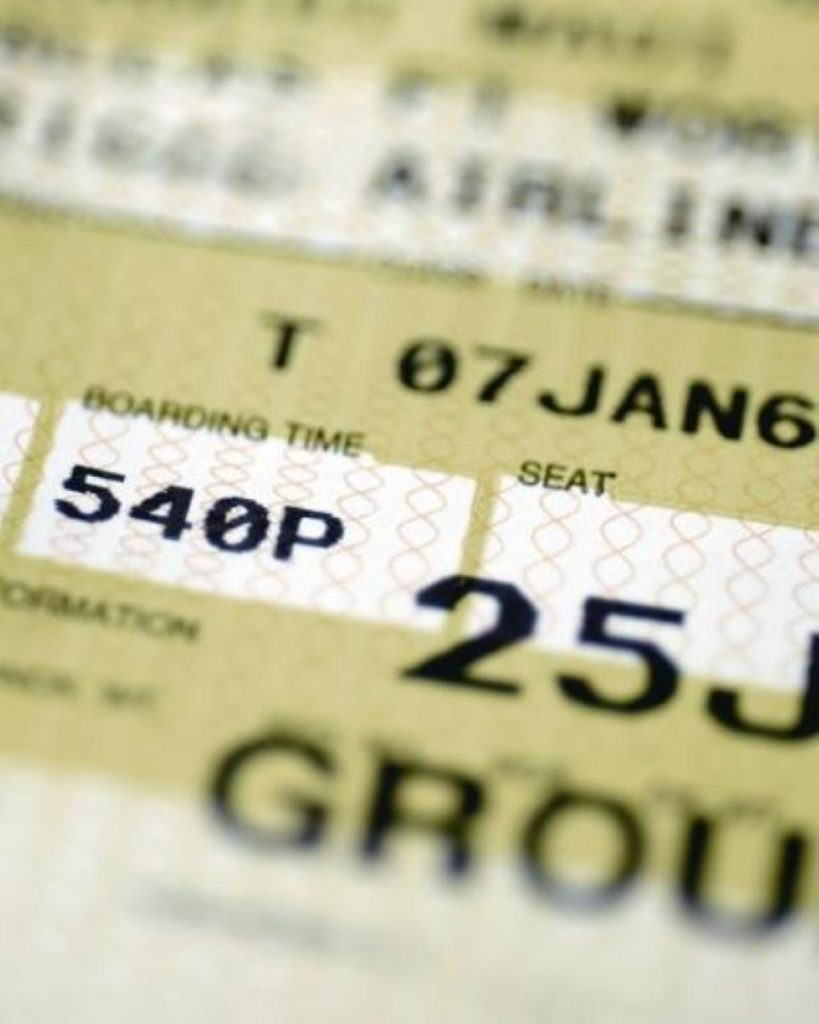Tough action urged to curb aviation
Flights must be made more expensive and airport expansion plans scrapped if Britain is to have any hope of meeting its climate change targets, academics have warned.
Researchers at the Environmental Change Institute (ECI) at Oxford university today say the government’s refusal to take decisive action on aviation means its hope of cutting carbon emissions by 60 per cent on 1990 levels by 2050 is unlikely to be fulfilled.
Aviation emissions could be between four and ten times higher than in 1990 by 2050, they warn, meaning the rest of the UK economy would have to cut its emissions by up to 87 per cent to reach the overall target.
The government’s aviation white paper predicts the number of air passengers in the UK will increase from 200 million in 2003 to 470 million by 2030, but today’s study says policy should change to focus more on how to stop airport expansion.


It also criticises ministers’ failure to take any real action to restrict air travel, other than to press for the inclusion of aviation in the European emissions trading scheme (ETS).
The report points out even ministers admit this will not solve the problem, and argues that the government must take action to make flights more expensive, including increasing air passenger duty (APD) – something Tony Blair has ruled out.
It acknowledges the economic concerns of restricting aviation – 200,000 people are directly employed by the industry – but say keeping people at home would address the £17 billion tourism deficit caused by Britons spending more abroad than foreign tourists do here.
“The government has to confront the contradictions in its policies. Unless the rate of growth in flights is curbed, the UK cannot fulfil its commitments on climate change,” said Brenda Boardman, the ECI’s project leader.
“If government wants to be confident about achieving its targets, it has to undertake demand management. Relying on technological fixes alone is totally unrealistic.”
Shadow transport secretary Chris Grayling said it was “extraordinary” that the government’s aviation policy did not reflect the problems of climate change, saying there was a “clear case” for reviewing the plans outlined in the white paper.
Liberal Democrat environment spokesman Chris Huhne expressed his concern at the “woeful” under-taxing of aviation, noting air passenger duty had fallen by eight per cent since 2000 despite a 35 per cent rise in passengers.
“We must shift the burden of tax onto emissions to encourage full flights, and raise tax to make clear the environmental cost of flying,” he said.
However, a spokesman for the Department for Transport (DfT) said the government had to strike the “difficult balance” between protecting the environment and people’s need and wish to travel abroad.
Tackling climate change required international action, he added, which was why ministers were pressing for the inclusion of aviation in the ETS “as soon as possible”. He also repeated concerns that raising passenger duty was a “fairly crude” way of cutting air travel.









